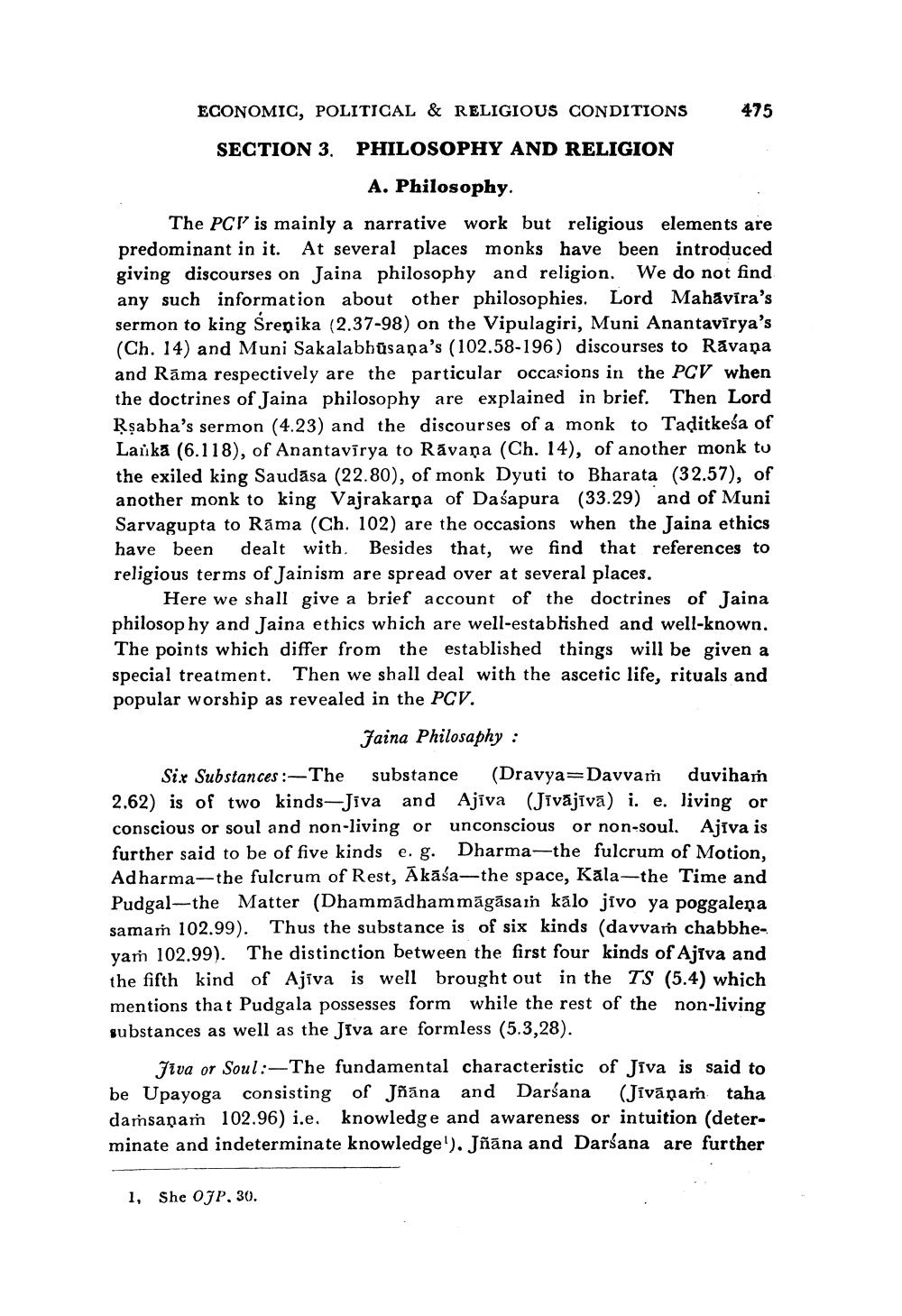________________
ECONOMIC, POLITICAL & RELIGIOUS CONDITIONS 475 SECTION 3. PHILOSOPHY AND RELIGION
A. Philosophy. The PCI is mainly a narrative work but religious elements are predominant in it. At several places monks have been introduced giving discourses on Jaina philosophy and religion. We do not find any such information about other philosophies. Lord Mahavira's sermon to king Srepika (2.37-98) on the Vipulagiri, Muni Anantavīrya's (Ch. 14) and Muni Sakalabhūsana's (102.58-196) discourses to Ravana and Rāma respectively are the particular occasions in the PCV when the doctrines of Jaina philosophy are explained in brief. Then Lord Rşabha's sermon (4.23) and the discourses of a monk to Taditkeśa of Lauka (6.118), of Anantavīrya to Ravana (Ch. 14), of another monk tu the exiled king Saudāsa (22.80), of monk Dyuti to Bharata (32.57), of another monk to king Vajrakarpa of Daśapura (33.29) and of Muni Sarvagupta to Ráma (Ch. 102) are the occasions when the Jaina ethics have been dealt with. Besides that, we find that references to religious terms of Jainism are spread over at several places.
Here we shall give a brief account of the doctrines of Jaina philosophy and Jaina ethics which are well-established and well-known. The points which differ from the established things will be given a special treatment. Then we shall deal with the ascetic life, rituals and popular worship as revealed in the PCV.
Jaina Philosaphy :
Six Substances :- The substance (Dravya=Davvam duviham 2.62) is of two kinds-Jiva and Ajiva (Jivājīvā) i. e. living or conscious or soul and non-living or unconscious or non-soul. Ajiva is further said to be of five kinds e. g. Dharma--the fulcrum of Motion, Adharma- the fulcrum of Rest, Ākāśa--the space, Kala-the Time and Pudgal--the Matter (Dhammadham māgāsain kalo jivo ya poggalena samaṁ 102.99). Thus the substance is of six kinds (davvam chabbhevan 102.99). The distinction between the first four kinds of Ajiva and the fifth kind of Ajiva is well brought out in the TS (5.4) which mentions that Pudgala possesses form while the rest of the non-living substances as well as the Jiva are formless (5.3,28).
Jiva or Soul:--The fundamental characteristic of Jiva is said to be Upayoga consisting of Jñana and Darsana (Jivānam taha darsanam 102.96) i.e. knowledge and awareness or intuition (determinate and indeterminate knowledge'). Jñāna and Darśana are further
1, She OJP. 30.




